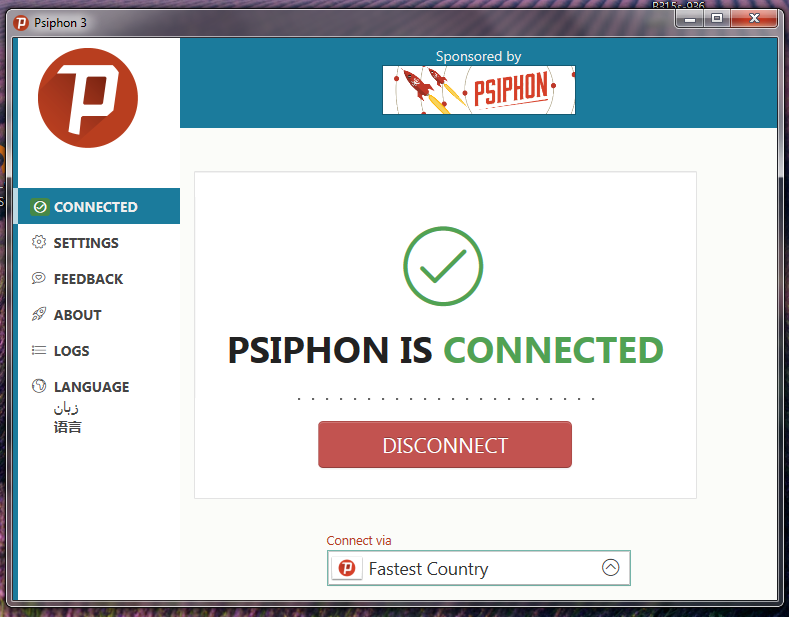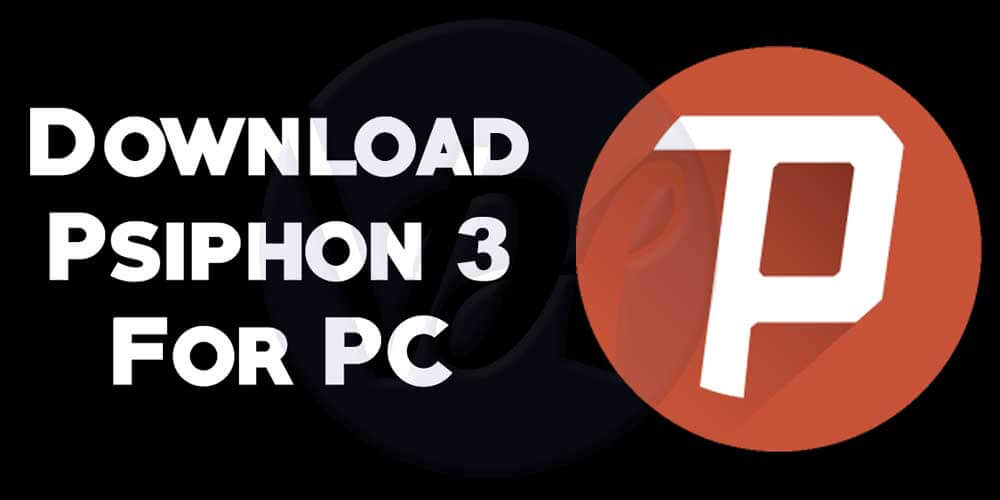Psiphon was created at the Citizen Lab Internet Freedom Center at the University of Toronto, Canada, in 2004. It was later taken over by a management team that also included the US Broadcasting Control Board, which includes the Voice of America.
The first versions of Psiphon involved the use of a “trusted person” network – one could become part of this network only by invitation from a friend, family member, or other person already using the system and living in a country where there is no Internet censorship. Later, in the latest development of Psiphon, this requirement was removed.
One of the distinguishing features of Psiphon is that there is no need to download large programs to install it. Everything is available on-line, which is a great advantage for users concerned that their computers may be checked for illegal programs.

How Psiphon works
Each new version of Psiphon becomes easier and easier, and Psiphon3 is one of the lightest in size and most unobtrusive mini-software.
Psiphon works in the following way: the user downloads a small executable file either on the computer or on a memory card which he can carry with him or give to someone else. When opening the file, the Windows security program will ask the question “should Psiphon be tasked to run?” This is an important step of verification as Psiphon is a very small executable and not a whole program, Windows will automatically create a certificate confirming that it is a genuine program and not a virus.
After the user starts the program a small window will appear with the Psiphon logo, several option windows and a blue rotating arrow. Each window will contain a constantly updated list of servers ready for connection via SSH+, SSH or VPN.
Psiphon will then connect to one of them over the encrypted channel of the Psiphon network. While the connection is being established the blue arrow will continue spinning. When the connection is complete it will turn green – Internet traffic is now flowing through the Psiphon network, allowing access to blocked sites.
Who is Psiphon good for?
Psiphon is a pretty powerful tool for bypassing censorship and also provides partial protection for your data. Since Psiphon is accessible on-line, Psiphon is a convenient means of accessing blocked sites from any public place, say an Internet cafe. Assuming that such computers do not have programs installed to record your activities, such as your keyboard activity, and you delete your browser history after your online session, it is very difficult to find out that you have been using Psiphon.
Suppose your country has banned Facebook. After having access to Psiphon you may log in through a network of proxy servers which will, in turn, connect you to the Psiphon master server. You will be informed about the connection through a window that will appear below the standard address window of your browser. As with any other connection there is no absolute guarantee of access to forbidden content but Psiphon may make it a lot easier to access blocked sites.
Possible disadvantages of Psiphon
There are two: Psiphon is only designed to work with Windows and Android, so the users of Apple and other operating systems do not have access to it. The second disadvantage is that unlike an anonymity tool like Tor, Psiphon does not guarantee that your personal information will be protected.
Although the traffic inside the Psiphon network is encrypted, it is possible to obtain information concerning the fact that your computer is connected to Psiphon servers. In addition to this, although the list of Psiphon servers changes all the time, there is no protection against having the traffic analyzed by unauthorized persons. This means that with sufficient tools the authorities may attempt to determine the identity of the Psiphon user and the content of their traffic.
Some analysts have noted that Psiphon’s design may make it vulnerable to man-in-the-middle attacks in which a user can access an encrypted stream of information between two points on the Internet while maintaining the illusion of a secure connection and intercept the data.

To summarize
Psiphon has proven to be quite successful at getting around government censorship, and to a lesser extent, protecting your personal data. Psiphon is easy to use, and there is little chance that the authorities will find evidence that you are using it.